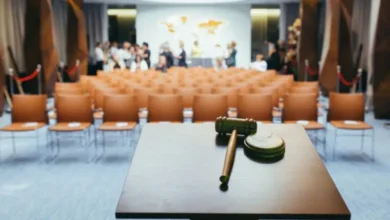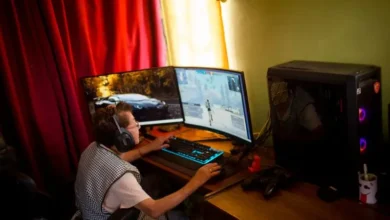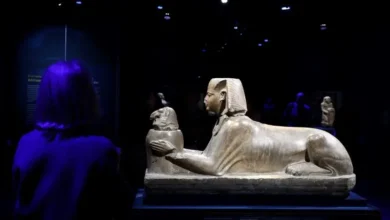Father uses artificial intelligence to talk too deceased son

In the quiet confines of an eastern Chinese cemetery, Seakoo Wu, a grieving father, pulls out his phone and places it on his son’s gravestone. With a heavy heart, he plays a recording of his late son’s voice, words that the young student never uttered in his lifetime but were brought to life using artificial intelligence.
Wu is among a growing number of Chinese individuals who have turned to AI technology to create lifelike avatars of their departed loved ones. Stricken by grief, he envisions building a fully realistic replica of his son that resides in virtual reality, capable of behaving just like him.

Chinese firms claim to have created thousands of “digital people” using as little as 30 seconds of audiovisual material of the deceased. While these avatars offer a sense of comfort, they also raise unsettling questions reminiscent of the British sci-fi series “Black Mirror,” where advanced AI is relied upon for bereavement support.
Wu and his wife were devastated when their only child, Xuanmo, suddenly passed away from a stroke while studying abroad in Britain. In his search for a way to bring back his son, Wu collected photos, videos, and audio recordings, spending thousands of dollars to clone Xuanmo’s face and voice using AI firms. Though the results are still rudimentary, Wu is determined to create an avatar capable of mirroring his son’s thinking and speech patterns precisely.

While the United States has seen the emergence of companies specializing in “ghost bots,” the industry is booming in China. Zhang Zewei, founder of AI firm Super Brain, attests to China’s prowess in artificial intelligence technology. Emotional needs and market demand in China have fueled the growth of this industry, with Super Brain charging between $1400 and $2800 to create a basic avatar within 20 days.
The ethical and psychological implications of such technology have yet to be fully understood. Tal Morse, a visiting research fellow in death studies, suggests that ghost bots may offer solace but emphasizes the need for further research in this field. Additionally, consent becomes a quandary as dead individuals cannot provide it, raising questions about the ethical boundaries of artificial intelligence replication.
Seakoo Wu remains hopeful, confident that advancements in technology will eventually allow his reunification with his son in the metaverse. As his wife tearfully listens, Wu believes that it is only a matter of time before the technology becomes even more advanced and lifelike.










